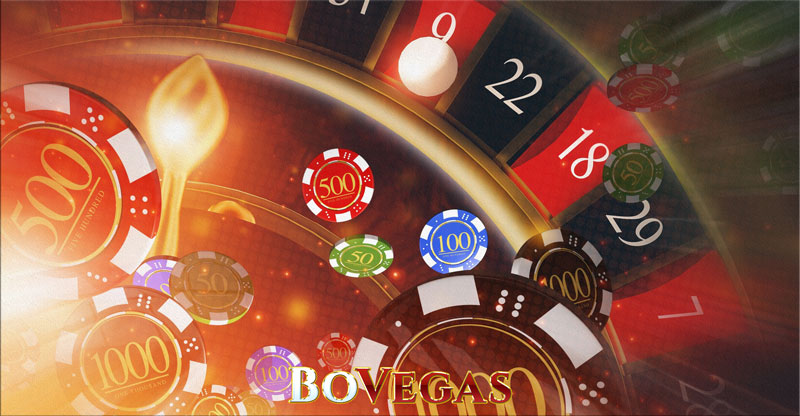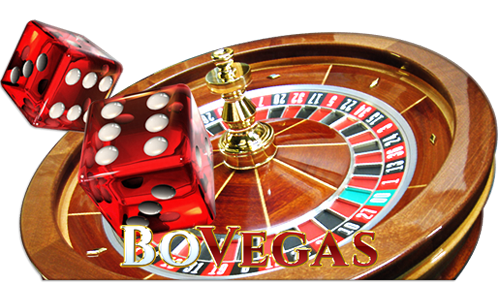



Any game of chance is based on probabilities, and the inventors of these games were pretty keen on math. Keep that in mind when you start playing them, or you’re going to be very disappointed! Because it is a business, after all! These guys invented methods for making money using probability theory. In short, every single game of chance has its house edge, which is the casino’s advantage over a player in the long run. For most casino games, including slots, the house edge is between 1% and 10% on average. For American Roulette, it’s 5.26%, and for the European variation, it’s 2.7%.
There’s a massive difference between winning at the casino and beating the casino. If, for example, you bet a hundred dollars on a particular number and win, you’ll instantly get $3,500. It’s a decent win, but you didn’t beat the casino with it! All gains and losses at each particular wheel even out to 5.26% in the long run. The good thing about roulette is that you can play without knowing anything about it whatsoever. That will do for an hour or so; but afterwards, you might want to know exactly how it works! So this is what we’re going to help you with now.
Let’s take American Roulette as an example, and figure out how well the bets pay. The American wheel consists of 38 slots, with different numbers on each of them. There are numbers from 1 to 36, zero, and double zero. The house edge is based on 0 and 00 slots, because if you didn’t bet on those ones specifically, you would end up losing your bet if the ball stops on either of them. All bets in roulette are separated by Inside bets and Outside bets. Outside bets are the ones where you get 2 to 1 or 1 to 1 payouts. All the others are Inside bets. So let’s see how this works.
All these bets have a 5.26% house edge, except for the First Five bet, which has a 7.89% house edge. This one is a sucker bet, which means that if you’re betting on First Five, you obviously have no idea what you’re doing! So if you’re going to play some roulette for real money, remember that the First Five bet is the least advantageous one.
Some rules might alter the house edge, but this is not something all casinos do. A half-back rule, for example, means that whenever you make an even money bet (red/black, odd/even, or high/low) and the ball hits zero or double zero, you lose only half of your bet. This rule decreases the house edge on even money bets to 2.63%, which is the level of European Roulette, and it’s mostly used in Atlantic City.
The difference between European and American roulettes is that the first one doesn’t have “00” hole, increasing player’s odds. The comparison between the two kinds can be put in the following way:
| Bet | Payout | American Roulette | European Roulette |
| Even | 1:1 | 46.37% | 48.6% |
| Odd | 1:1 | 46.37% | 48.6% |
| Red | 1:1 | 46.37% | 48.6% |
| Black | 1:1 | 46.37% | 48.6% |
| Single Number | 35:1 | 2.63% | 2.7% |
| 1-18 | 1:1 | 46.37% | 48.6% |
| 19-36 | 1:1 | 46.37% | 48.6% |
| 1-12 | 2:1 | 31.58% | 32.4% |
| 13-24 | 2:1 | 31.58% | 32.4% |
| 25-36 | 2:1 | 31.58% | 32.4% |
| 2 Number Combination | 17:1 | 5.26% | 5.4% |
| 3 Number Combination | 11:1 | 7.89% | 8.1% |
| 4 Number Combination | 8:1 | 10.53% | 10.8% |
| 5 Number Combination | 6:1 | 13.2% | 13.5% |
| 6 Number Combination | 5:1 | 16.2% | 16.2% |
| 1-2-3-0-00 Number Combination | 6:1 | 13.16% | none |
As you can see here, the odds in European Roulette are a little bit higher. When you play live or online roulette for real money, you should definitely make sure the wheel is not biased. This is true of real live wheels, as well as the online software of the websites you play at. Only visit venues with a good reputation and online casinos with high ranks and feedbacks. When you play online roulette, real money bets are made; and if the website is a part of a scam, you may lose it all from your account. Yet another reason for you to be careful!
Many gamblers refer to different kinds of strategies like Martingale, Reverse Martingale or All-In systems which are believed to increase the odds and lower the house edge. Using these progressions only helps you to organize your bets in order to get the best results. Most often, if you want to reclaim the loss of your original wager you will have to hit either a winning or a losing streak.
 However, every strategy has its drawbacks. The Martingale system will make you double your bet every time you lose, and it will drain your bankroll at the speed of light! Reverse Martingale has 86.5% odds of winning and its profits are really low. The 1-3-2-6 system is one of the most basic ones, and it helps players last a long time in the game. Nevertheless, this exact approach won’t make you earn much; and for the maximum effect, you would have to win 4 times in a row!
However, every strategy has its drawbacks. The Martingale system will make you double your bet every time you lose, and it will drain your bankroll at the speed of light! Reverse Martingale has 86.5% odds of winning and its profits are really low. The 1-3-2-6 system is one of the most basic ones, and it helps players last a long time in the game. Nevertheless, this exact approach won’t make you earn much; and for the maximum effect, you would have to win 4 times in a row!
Any kind of progression theory is of doubtful value when it comes to roulette. If you hit a losing streak any one of them will be just useless. So, in those cases where one of them doesn’t work, switch to another one straight away!
Let’s make this clear here. When people google “probability theory” plus some game of chance name, or “roulette probability,” they’re usually looking for a betting strategy.
This is okay with some card games, like Blackjack, where you can count the cards and increase your chances; but Roulette is entirely random, and there is no way of beating Roulette with math. Each and every spin of the wheel is random, and no one knows where the ball will stop. So even if the ball lands on the black ten times in a row, it has an equal possibility of hitting either red or black for the eleventh time! And anyone who states the opposite is either a liar or a simpleton.
So if you actually want some good advice, here it is. Quit while you’re ahead, and don’t try and bet more than you can afford. And don’t ever trust a betting strategy, especially if the person following it claims that it works for roulette.
Now this may come as something of a disappointment to you, but you can only win at Roulette if you’re lucky. That’s the only way it works, and there is no other way; unless of course, you’ve somehow had the good fortune to come across some old, worn-out, or flawed roulette wheel. We’re all aware of the one single betting strategy that helps in Roulette: it’s called “common sense!” The best way for you to win (or at least not to lose too much!) is to make even money bets because with them, you win more often. You may bet on a particular number too, but we recommend doing so not just when you’re feeling lucky, but also when you’re feeling extremely lucky!

Lotteries first appeared back in the 15th century, or so it seems; and since the 1960s, they have been getting ever more popular in developed countries. They usually have low odds; but this doesn’t really matter much. For the majority of people who want to hit a lottery prize, the kind of stakes at issue […]
“I know that the spades are the swords of a soldier, I know that the clubs are weapons of war, I know that diamonds mean money for this art, But that’s not the shape of my heart…” We all know these lyrics from “Shape of My Heart,” the popular song by Sting. He uses very […]
Do you want to experience the real taste of Asia and at the same time play your favorite games in the world’s best casinos? Then Macau is your must-go destination. And we’re going to tell you why now: A Few Words About Macau Macau was originally a Portuguese colony in China. The Portuguese legalized gambling […]
Blackjack has always been one of the most popular table games in casinos around the world. But ever since the famous MIT Blackjack Team decided to play blackjack for real money and finally broke the news with their incredible success, people from all around the world started wanting a slice of the pie. Suddenly, the world has […]
On Monday September 14, MGM announced that it plans to open its first smoke-free casino at the end of September, when Park MGM will finally reopen its venues to players and tourists. The resort comprises around 2,990 rooms and various restaurants, and it’s set to be reopened on September 30. The venue has been closed […]
Online gambling has undoubtedly taken a place of true supremacy over the casino industry during the pandemic. And the reason for that is quite clear: online casinos are more accessible, and you can always count on some encouragement from the casino administration to help you boost your game. However, this digital revolution has only been […]
The large selection of online gambling sites out there can make players somewhat puzzled, and give them a feeling of uncertainty about making the right choice of casino. Each online gambling venue offers its own conditions, games, and various bonuses, of course; but the most important thing is the reliability of the casino and the […]
To be or not to be? This question is bothering thousands of players out there, who are all busy contemplating their playing strategies. “Should I bet more?” Or, “is it all about luck?” These are just some of the many questions that have been bothering people who are keen on casino games; and quite honestly, […]